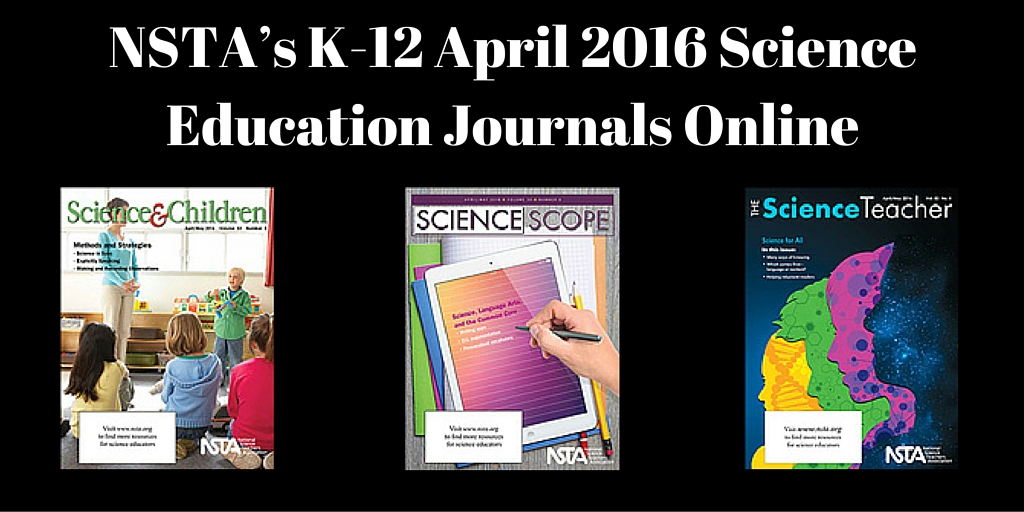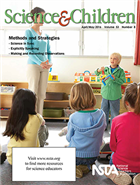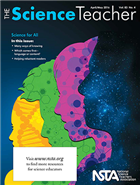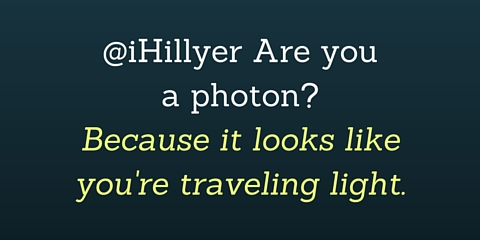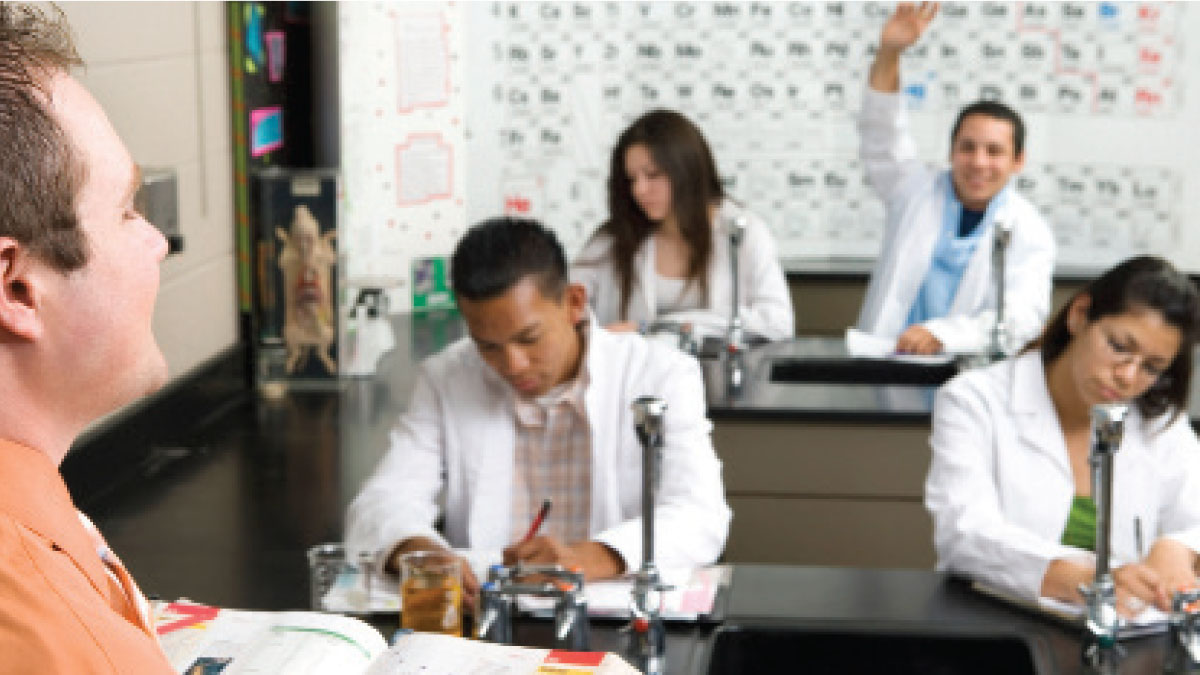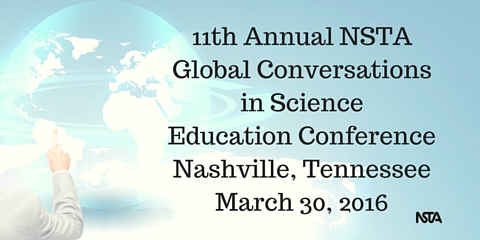NSTA’s K-12 April 2016 Science Education Journals Online
By Korei Martin
Posted on 2016-04-04
Want your elementary students to think, read, and write like scientists? Want to take advantage of the emergence of tablets in the classroom? Wondering how you can teach science to a classroom full of students with different backgrounds and socioeconomic status’s? The April K–12 journals from the National Science Teachers Association (NSTA) have the answers you need. Written by science teachers for science teachers, these peer-reviewed journals are targeted to your teaching level and are packed with lesson plans, expert advice, and ideas for using whatever time/space you have available. Browse the April issues; they are online (see below), in members’ mailboxes, and ready to inspire teachers!
Applying multiple disciplines to science practices facilitates learning and addresses misconceptions. The methods and strategies in this issue of S&C will help your students to speak, think, and write like scientists.
Featured articles (please note, only those marked “free” are available to nonmembers without a fee):
- Science in Sync
- Meta-Sticks
- Making and Recording Observations
- How About Teaching Literacy With Science?
- Explicitly Speaking
- Free – Editor’s Note: Developing a Curriculum
- Free – Addressing Student Diversity and Equity
- Full Table of Contents
Tablets are quickly becoming the new notebook in classrooms, and the apps available today can help students create, collaborate, and communicate in new and exciting ways. Learn how to use these tools and other teaching strategies to connect science to language arts and the Common Core in this issue of Science Scope.
Featured articles (please note, only those marked “free” are available to nonmembers without a fee):
- Personalized Vocabulary Learning in the Middle School Classroom
- Naming the Solar System: Implementation of Vocabulary Strategies to Improve Scientific Literacy
- Making Science Real: Supporting English Learners in Argumentation and Exploration Through Authentic Tasks
- Light, Color, Vision, Optics! A Text Set for Grades 6–8
- Free – Editor’s Roundtable: Moving Beyond Traditional Science Writing
- Free – Addressing Student Diversity and Equity
- Full Table of Contents
This issue marks our 21st consecutive spring issue devoted to “Science for All.” Over these years this annual issue has presented ideas and teaching strategies for helping all learners find success in their science classes. A primary goal has been to provide instructional methods to help narrow persistent academic achievement gaps associated with ethnicity, socioeconomic status, gender, physical disabilities, limited English-language proficiency, and learning differences. Improving our schools and providing equitable education for all students must be among our country’s highest priorities.
Featured articles (please note, only those marked “free” are available to nonmembers without a fee):
- Many Ways of Knowing
- Helping Reluctant Readers
- Family Science Night
- Critical Response Protocol
- Free – Addressing Student Diversity and Equity
- Free – Which Comes First—Language or Content?
Get these journals in your mailbox as well as your inbox—become an NSTA member!
The mission of NSTA is to promote excellence and innovation in science teaching and learning for all.
Follow NSTA
Multicultural Equity at NSTA16
By Lynn Petrinjak
Posted on 2016-04-01
Earlier today I attended the Equity Through STEM session presented by Jerry Valadez and Retiring NSTA President Juliana Texley. The discussion was intriguing—not only did they share the history of multicultural initiatives within NSTA, they talked about the disparity in the availability of science, technology, engineering, and mathematics (STEM) courses to students.
I was surprised to learn there are schools that do not allow students to participate in science classes until they meet benchmarks in other areas. As Texley pointed out, if you pull students out of science class to provide remedial instruction in other subjects, you are effectively telling them that science is not for them. How do you get children interested in science when they’ve never had a chance to explore? If you don’t get them interested in early in their education, the chances of inspiring these students to pursue careers in the STEM fields aren’t great.
A great discussion followed with attendees sharing their experiences—as former students and as current teachers—and talking about the need for mentors with whom students can identify and support from colleagues and administrators alike when trying to improve/increase science education opportunities in struggling schools. Looking around that room and thinking of all the different people—spanning ethnicities, genders, countries of origin, and income level— I’ve met at NSTA conferences over the years, I think it’s clear a lot of progress has been made from the old stereotype of science as a field only for white men. However, it’s just as clear a lot more needs to be done to ensure future generations know science is for anyone and everyone.
The Multicultural Equity Share-a-thon will be held tomorrow (Saturday) at 2 p.m. I’m eager to see what sort of targeted resources and strategies will be featured.
Earlier today I attended the Equity Through STEM session presented by Jerry Valadez and Retiring NSTA President Juliana Texley. The discussion was intriguing—not only did they share the history of multicultural initiatives within NSTA, they talked about the disparity in the availability of science, technology, engineering, and mathematics (STEM) courses to students.
The True Story of #LilHil: How Social Media Helped Me Write My #NSTA16 Nashville Story
By Patricia Hillyer
Posted on 2016-03-31
I started my Flat Stanley-esque campaign of #LilHil to chronicle my trip to the NSTA National Conference on Science Education in Nashville … I figured EVERYONE was tired of seeing me in a selfie… so I made a Flat Patty or Little Hillyer aka #LilHil (I’ve gone back and forth with #LilHil and #LilHill… that does make a difference).
#nsta16 #nashville via https://t.co/uhlzd67Inw pic.twitter.com/MtYcRPb0hP
— Patricia Hilton (@MsLilHil) March 27, 2016
Tag, Tag, Tag
In documenting my trip I decided on a whim to tag the airline…. never in a million years did I expect the responses.
#LilHill ready 4 take off @United @nsta #NSTA16 #Nashville here I come @pj_Simon #itouchthefuture pic.twitter.com/CuuNdmnuOM
— Patricia Hilton (@MsLilHil) March 30, 2016
@iHillyer Are you a photon? Because it looks like you're traveling light. Have a great time! ^JD
— United Airlines (@united) March 30, 2016
Many tweets later… I was still laughing at how witty the person tweeting from United was!
@iHillyer I bet his real name is Adenine because he looks pretty happy to be paired with U. Keep sharing LilHil's adventures with us. ^JD
— United Airlines (@united) March 30, 2016
Ok, last one (but there are more on my twitter feed!!!)
@iHillyer Oh, it must just be the genes I'm wearing today. ^JD
— United Airlines (@united) March 30, 2016
Funny/Important Lesson to Share with Students
All jokes aside, it is extremely important that you realize that someone or some people are reading your social media accounts and posts. And once they’re out there… there’s no eraser large enough to undo them. Choose wisely. Please promote this concept with your students too. Social media safety is no joke.
Why do you want to get involved in social media? And by social media I’m talking about teacher Facebook page, Twitter, or Instagram accounts, not personal ones. You can cheaply and rapidly promote student successes. This is the number one reason why. Promoting success breeds more success. Students love to see themselves. Not self promoting but promoting students, which is what it is all about.
It promotes literacy! You tell a story. My students are following my experiences online. They get to hear what Nashville is like, the people, the food, the music.
Great source of teacher professional development… ask a question, hashtag #scienceEd or #edchat or tag @nsta …
Before you do anything, check your school’s or district’s social media policy, and be sure you know if parents gave permission for photos to be shown online before promoting student work.
So I think I figured this whole thing out. Ok, not really, but it sounds good… #itsahillyerthing
Shameless Plug ALERT…
Follow me on Twitter:
@iHillyer
Instagram:
@mrshillyer
And in the comments, please let me know how you are using social media, because after all, it’s about sharing, and I love to learn from my social media PLN.
The mission of NSTA is to promote excellence and innovation in science teaching and learning for all.
Future NSTA Conferences
2016 National Conference
2016 STEM Forum & Expo
2016 Area Conferences
Follow NSTA
Addressing Student Diversity and Equity
The Next Generation Science Standards are leading a new wave of reform.
2015 REVERE Award Finalist, PreK-12 Learning Group, Association of American Publishers!
2015 REVERE Award Finalist, PreK-12 Learning Group, Association of American Publishers!
Bill Nye's Rising Star Wants to Talk to Science Teachers
By Lauren Jonas, NSTA Assistant Executive Director
Posted on 2016-03-29
Whitney Pratz (Partnerships Manager at the Planetary Society) had no idea she was applying for a job with America’s science superhero a few years ago when she applied for a nonprofit job on craigslist. She was just trying to learn something new and ended up with her dream job. I sat down with her for a Q&A in Nashville today to find out what it’s like to work with Bill Nye, if she has any advice for kids who want to go into STEM fields, and whether or not Nye actually had anything to do with her brilliant, nebula-inspired purple hair.
How did you get your job with Bill Nye? Was that a bucket list thing?
It’s definitely a dream job, but I was halfway through the application process with The Planetary Society before I found out Bill was the CEO, so that was really the cherry on top. I was working as an executive assistant and wanted to do something new and was casually looking on craigslist for a nonprofit job.
Do you have a science background? Is that why you got the job?
No. In fact, I have an MFA and thought this would be a great opportunity to grow. In college I took the bare minimum science requirement and I really regret it—I loved the classes, but it just didn’t dawn on me that I could or should take more. Of course, there are scientists working at the Planetary Society, but there are also others like me. The Planetary Society’s mission is empowering the world’s citizens to advance space science and exploration, and so my background has helped tremendously as I communicate our work. I’m able to break it down for the lay person. To me, the point of science is teaching you to ask the right questions. And I had to ask a lot of questions when I started—I had to learn a lot of acronyms, for instance.
You have amazing hair. Were you inspired by your fine arts background, or did Bill help?
No, Bill wishes he could help me pick my hair. He’s modeling some new office colors on my hair color.
Beyond remodeling, what is the Planetary Society up to these days?
We are building a STEAM team of teachers, with the goal of getting science taught in every classroom. We find, especially, that elementary science education is severely lacking. At NSTA’s National Conference this week, we will be talking to as many teachers as possible, asking them what it would take to teach space science, even for 30 minutes a week. Bill will be giving The Planetary Society Lecture “If Dinosaurs Had a Space Program” on Wednesday night in the Grand Ballroom. We’ll start the conversation there, and we’ll be using the hashtag #STEAMteam so people can follow along and ask questions. You can follow us on Twitter @exploreplanets.
On a personal note, I hear you’re a way better dancer than Bill. Why do you think he ended up on Dancing with the Stars instead of you?
Hard to say, but I actually took a class in Nashville last night. I’m getting even better, should they come calling…
What do you want kids to know about learning science?
Don’t be afraid of it. Find something that makes you excited to learn and follow it!
How can teachers get involved if they aren’t at our conference?
Check out our website (www.planetary.org), join the Planetary Society, and stay tuned for the launch of the STEAM team. We’ll be at booth 1012 in the exhibit hall in Nashville, talking to teachers and giving away Asteroid Stress Balls (which are out of this world, I have to say)!
Will Bill be there?
He LOVES the exhibit hall at NSTA conferences. Last year you would have been most likely to find him in that giant inflatable planetarium. So, you may see him, but I’ll definitely be there. You can’t miss me. I’ll be right next to that Weather Dog.
You mean Schmitty? Who do you think is the more popular celebrity at this conference? Bill or that little dog?
No question, it’s the weather dog, and Bill doesn’t mind being upstaged by him. I sometimes sneak out of my booth just to pet him.
 Editor’s Note: If the fate of the planet(ary society) rests in the hands of Whitney Pratz, I’d say the kids will be all right!
Editor’s Note: If the fate of the planet(ary society) rests in the hands of Whitney Pratz, I’d say the kids will be all right!
The mission of NSTA is to promote excellence and innovation in science teaching and learning for all.
Future NSTA Conferences
2016 National Conference
2016 STEM Forum & Expo
2016 Area Conferences
Follow NSTA
Studying Science at the Zoo
By Debra Shapiro
Posted on 2016-03-28

Fifth graders construct oyster mats for the Indian River Lagoon Oyster Restoration Project as part of activities in Zoo School at Brevard Zoo in Melbourne, Florida.
Schools around the country are partnering with their local zoos to establish “zoo schools,” or classrooms at the zoo that enable teachers to incorporate zoo resources into their lessons. At Brevard Zoo in Melbourne, Florida, for example, Zoo School “immerses students in hands-on discovery and interactive learning through both animal encounters and environmental programming,” says Zoo School Coordinator Dawn Hurley. “We’ve lost our appreciation for nature, its value to our quality of life, and the need to foster an informed sense of stewardship, especially in this age of ever-increasing technology. With Zoo School, the walls of the traditional classroom have been expanded to offer those opportunities in a safe and structured environment.”
In 1996, fifth graders from Melbourne’s Sherwood Elementary School began coming to Brevard Zoo for an “integrated, thematic approach to science, mathematics, social studies, and language arts,” says Hurley. Sherwood teachers and other educators from Brevard Public Schools partnered with the zoo’s education staff to develop an interdisciplinary, science-based “Zooriculum” that supports state standards and Common Core State Standards, she explains.
In 2000, Brevard Zoo received a $500,000 grant from the Eckerd Family Foundation to build three permanent classrooms on-site: a cave, a tree house, and a house that resembles the homes of the state’s original settlers. The classrooms “are on zoo property, but off the zoo path,” so visitors are unlikely to drop in and distract students from learning, Hurley points out.
Since then, fifth graders from two other Brevard County schools—Cambridge Elementary and Dr. W.J. Creel Elementary—have joined the program, and each school spends six weeks at Zoo School. The schools are on-site at separate times, and “we schedule them all before spring break and [Florida State Assessment] testing so that all can benefit from what they’ve learned at the zoo,” says Hurley.
Three Zoo School Instructors work with the classroom teachers to teach thematic lessons covering topics like general animal care, habitats, adaptations and behavior, and Florida fossil history. “An extensive conservation program…involves students in activities like oyster reef restoration, mangrove planting and fostering, and sea turtle education. Students also learn from the zoo’s animal keeper staff, who regularly [discuss]…specific animal needs, diets, and behaviors and inform students about their individual career paths,” Hurley relates. “The goal is to encourage students to develop an interest in science while cultivating a stronger sense of community involvement and environmental stewardship.”
Teachers have remarked that “attendance spikes during Zoo School, reinforcing student interest in the program and subsequent experiential learning in a new environment,” and students have said it was “the best time in their life…ever,” she reports.
Unique Course Offerings
Located at the North Carolina Zoological Park in Asheboro, North Carolina, Asheboro High School (AHS) Zoo School gives students “a unique opportunity because we’re able to offer classes here like zoology, agricultural science, and forensics. These classes are only offered at Zoo School,” not at AHS’s main campus, says science teacher Brooke Davis, the program’s lead teacher. “I can teach about primates and ecosystems because the zoo is set up as a teaching resource,…[making it easy] to incorporate environmental science and ecology” in lessons, she maintains.
Students accepted into this science-based program take their science, math, social studies, agriculture, and for some, English classes, at the zoo; some students take one or two classes on the main campus, then finish the school day at the zoo. Though Zoo School can accommodate as many as 150 students, “our school building is a modular unit with a small but cozy, family-like atmosphere that students enjoy,” Davis explains.
“The zoo gave us a little piece of land to rent at a low cost,” she relates. “We have an outdoor classroom area and access to a lake” and a community garden. Students can work with the zoo’s horticulture staff in greenhouses. “The horticulture class is helping the zoo grow its annuals. They get to see the horticulture industry in action,” she observes.
Students “do a lot of project-based learning and regularly make presentations to the community, zoo staff, and to parents on Parent Night,” as well as to notables like the state’s governor, says Davis. Class sizes are smaller than those on the main campus—20 to 25 students—which makes it easier for “hands-on, project-based learning” to occur, she points out.
In the zoology class, for example, “students do most of the teaching. They do projects and present their findings,” Davis notes. On Amphibian Awareness Day, “students are in charge of activities that day. They meet with zookeepers in advance to plan the day.” In addition, “we have a wildlife rehabilitation center here. Students can eventually be certified in wildlife rehabilitation,” she reports.
In the forensics class, “we create a mini-murder mystery for students to solve,” she relates. Students observe the behaviors of zoo visitors at various locations “and use that as an example of witness statements,” she explains. The class “incorporates something else besides animals [because] we want everybody to be included. We don’t have a sole purpose of training zookeepers; we cover all kinds of careers.”
Because Zoo School students must traverse the zoo grounds daily and interact with visitors, students accepted into the program “have to be willing to think outside the box, be comfortable with project-based learning and have the ability to work independently and in groups. They have to be mature enough to walk around the zoo by themselves and explain their projects to visitors. They need to be able to handle the freedom they have without teachers having to hold their hands,” Davis emphasizes.
Though Zoo School courses are rigorous, “we don’t just choose students for the program based on grades; we look at discipline and attendance as well. They have to be reliable and trustworthy,” she maintains. “The zoo expects the kids to be actively working on projects, not just strolling around.”
Zoo School students welcome and benefit from these opportunities. “Our kids really want to be involved…Kids you’d never think would want to be in the public eye” have blossomed and thrived in the program, Davis observes. “Sometimes a traditional classroom is not enough for kids. They want to be in a different environment.”
A Zoo Magnet Program
For more than 25 years, Richmond Heights Middle School in Miami, Florida, has offered its Science Zoo Magnet Program at Zoo Miami. “We are a Title I neighborhood school that offers a magnet program, and the program has given us a chance to increase student enrollment from students outside of our boundary,” says Zoology Magnet Lead Teacher Tamara Monroe. “We focus on animal con
servation efforts and learning about exotic animals and zoo careers.”
Sixth graders study animal classification, taxonomy, habitats, and behavior and create ethograms, quantitative descriptions of an animal’s normal behavior. “They develop a general knowledge of different animals and learn to differentiate among animals within a species,” says Monroe. Seventh graders focus on amphibians and reptiles, marine mammals, animal conservation, and laws protecting animals, while eighth graders concentrate on primates, birds, and animals’ anatomy and physiology.
On their daily zoo visits, students “do research and talk with experts in the field of animal science about their conservation projects and share personal experiences and stories,” Monroe relates. “It’s bringing their books to life…Students can learn about science, then go outside and really learn and explore science.”
In addition to their studies at Zoo Miami, students take “expeditions” to venues such as Miami’s Monkey Jungle wildlife park, the Marjory Stoneman Douglas Biscayne Nature Center in Key Biscayne, and Everglades National Park—or even as far away as the National Zoo in Washington, D.C. “We wanted students to see how the exhibits and animals there compared with [those at] Zoo Miami, and compare the Washington climate with Miami’s, which determines why some animals [can’t be housed at some locations], as well as the design layout of other zoos,” Monroe explains.
The program expands students’ horizons. “Sixth graders all start out saying they want to be veterinarians…[After being in the program,] they have a broader interest in science careers, [not just limited to] veterinarian and zookeeper. It gives them a lot of options,” she observes. In addition, students develop “a love and compassion for animals.”
They also benefit academically. “Students tend to do better in English language arts and math because the teachers are able to integrate the zoo magnet curriculum into other subjects…They can work with topics that students are already interested in, and still teach their content,” Monroe contends.
After leaving Richmond Heights, “students have told us that in high school, they tend to do extremely well in biology because they had three years of it in middle school. They tend to excel in science [in general] in high school,” she reports. ●
This article originally appeared in the April 2016 issue of NSTA Reports, the member newspaper of the National Science Teachers Association. Each month, NSTA members receive NSTA Reports, featuring news on science education, the association, and more. Not a member? Learn how NSTA can help you become the best science teacher you can be.
The mission of NSTA is to promote excellence and innovation in science teaching and learning for all.
Follow NSTA
Apprehensive about teaching science
By Mary Bigelow
Posted on 2016-03-27
 I’m nervous about teaching science. It was not my favorite subject in high school and I took only the required courses in college (mostly lecture). My elementary math-science methods course included science inquiry, but I had very few opportunities to do science activities during student teaching. Now that I’m on my own in a first grade classroom, I’m not sure where to start. I feel like I don’t have the knowledge or experience to do a good job. —C., Washington
I’m nervous about teaching science. It was not my favorite subject in high school and I took only the required courses in college (mostly lecture). My elementary math-science methods course included science inquiry, but I had very few opportunities to do science activities during student teaching. Now that I’m on my own in a first grade classroom, I’m not sure where to start. I feel like I don’t have the knowledge or experience to do a good job. —C., Washington
Many elementary teachers share your apprehension. Sometimes, as in your case, it may be due to a lack of background in science content or processes. A school’s focus on reading and math may limit science (and social studies) to only a few minutes per week. I’m glad to see that you are thinking about providing time and opportunities for science investigations.
For starters, look at the science curriculum. What are the goals for first grade? Focus on content and activities related to those goals. Ask other teachers in your school what they do and if they’re willing to share. Collaborating with your peers on science lessons can be a powerful form of professional development. Could your school provide time or resources for these collaborations?
If you have to design or choose your own science activities, take a deep breath and jump in with a simple activity…and another…and another. After each, reflect on what went well and what could be improved. Even something as simple as growing seeds or examining rocks can be interesting for students.
NSTA’s Science and Children journal is a good source of lesson ideas each month (and you can search the back issues by topic):
- Teaching with Trade Books explores a concept with recommended books and detailed lessons. For example, the December 2015 topic is “Sunrise, Sunset, and Shadows.” The article lists two books (K–2 and 3–5) and two lessons related to the books. You could substitute other books, too.
- The Early Years features easy-to-use ideas for developing student interests and curiosity. The December 2015 topic is “The Earth-Sun System.”
- Each issue features articles related to a monthly theme and include lesson plans with connections to the Next Generation Science Standards. The illustrated lesson plans are easy to follow and include links to any required documents or resources and examples of student work.
You could also provide opportunities for informal activities:
- A collection of science-related books available for instruction, independent reading, or picture-looking.
- Learning centers with a science theme and objects for students to explore (such as bones, butterfly larvae, shells, or rocks), materials they can manipulate and build with, or a classroom garden or aquarium.
- Incorporating science practices into math activities, including measuring and graphing.
- Read-alouds or book talks using science-related nonfiction books. NSTA has reviews of recommended trade books.
The internet has resources to fill the holes in your own content knowledge. Find out what kind of science or nature seminars or programs are offered at local museums, parks, science centers, or libraries. These are usually informative, enjoyable, and may provide continuing education hours and opportunities to network.
Participating a professional learning community through social media offers a just-in-time way to get ideas and information. NSTA has e-mail lists and discussion forums related to elementary, new teachers, and general science. Science teachers use many hashtags on Twitter, including #nsta and #scichat. In all of these resources, you’ll find that our colleagues are eager to offer information, suggestions, and resources.
You might think “What if I try an activity or investigation that goes wrong? What do I do?” You certainly need to be prepared and organized, but if you don’t try an activity or investigation until or unless you’re sure it will be perfect, you’re missing opportunities for you and your students to explore, learn, and reflect. Give yourself permission to make mistakes (and learn from them). See the November 2012 blog “Learning from Mistakes” for an example of how a teacher and her students turned a “failed” activity into a powerful learning experience.
Young students are by nature inquisitive, curious, and eager to learn about the world around them. So relax a bit and enjoy learning with your students. They won’t care if you say “I don’t know—let’s figure it out” in response to a question! They don’t need a sage on the stage as much as they need a guide on the side—or a partner in the process.
Early Childhood at the NSTA 2016 national conference: Elementary Extravaganza and more!
By Peggy Ashbrook
Posted on 2016-03-27
 When I search any conference schedule to choose sessions to attend I am always suspicious of those that are listed as for PreK-12. I am delighted that the NSTA 2016 national conference coming up next week in Nashville has many sessions focused on early childhood years, preschool through grade 2. I will have to make hard choices some days between sessions such as:
When I search any conference schedule to choose sessions to attend I am always suspicious of those that are listed as for PreK-12. I am delighted that the NSTA 2016 national conference coming up next week in Nashville has many sessions focused on early childhood years, preschool through grade 2. I will have to make hard choices some days between sessions such as:
A session by the Council for Elementary Science International, “Building Towers and Structures! Using the Engineering Design Process with Young Children!” and “The Living Classroom: Turning Your Curriculum into an Outdoor Adventure Through Learning Gardens” are both on Thursday, March 31 12:30 PM – 1:00 PM.
On Friday my day will be book-ended by two events for early childhood educators: the Elementary Extravaganza in the morning and an informal gathering from 3:10 PM – 4:30 PM in the lobby of the Omni Nashville Hotel. This gathering brings co-facilitators and members of the NAEYC Early Childhood Science Education interest forum together with all other interested early childhood educators. I hope to meet you there!
 I will also be at the NSTA store to talk with you about my book, Science Learning in the Early Years. The book includes many of the Early Years columns from Science and Children with descriptions of how they can become part of a science inquiry.
I will also be at the NSTA store to talk with you about my book, Science Learning in the Early Years. The book includes many of the Early Years columns from Science and Children with descriptions of how they can become part of a science inquiry.
Don’t miss the Elementary Extravaganza! On Friday, April 1 from 8:00 AM – 10:00 AM, this grand ballroom will be filled with tables staffed by preK to elementary educators with engaging hands-on activities, strategies to excite and encourage your students, and resources for use in your classroom immediately. There will be a preview of the best trade books available, information about award opportunities, contacts with elementary science organizations, door prizes, and coffee. “Walk away with a head full of ideas and arms filled with materials.” Thank you to participating organizations and sponsors of this event!
 On Saturday, April 2, 5:00 PM – 6:00 PM, I will have to miss the session, “We Are Engineers, Too!,” because I will be assisting Dr. Beth Van Meeteren in her session, “Ramps and Pathways: An Integrated STEM Activity.” I love it when presenters upload handouts on the conference site, allowing me to peek into the session even if I can’t actually attend.
On Saturday, April 2, 5:00 PM – 6:00 PM, I will have to miss the session, “We Are Engineers, Too!,” because I will be assisting Dr. Beth Van Meeteren in her session, “Ramps and Pathways: An Integrated STEM Activity.” I love it when presenters upload handouts on the conference site, allowing me to peek into the session even if I can’t actually attend.
Thank you to Conference Committee Leaders Becky Ashe, Conference Chairperson; Margie Hawkins, Program Coordinator; and Tanisha L. Wesby, Local Arrangements Coordinator!
If you can’t get to Nashville, consider attending the 5th Annual STEM Forum & Expo, hosted by NSTA in Denver in July 27–29, 2016 This event has an entire strand focused on Lower Elementary/Early Childhood.
“Students in the lower elementary grades are beginning to understand the world around them and the role they play in it. They are curious and want to make sense of their surroundings. By providing students with inquiry-based experiences in Science, Technology, Engineering, and Mathematics, we can unlock each student’s natural curiosity and help them understand the world in an engaging way. The foundational skills learned and mastered through the integration of STEM during the early years, if done right, will help these students be critical thinkers and makers that can innovate the future they will be a part of. Sessions in this strand will emphasize open-ended and active exploration, play, and investigation of the real world through the lens of NGSS.”
Well said!
NSTA on the International Scene
By Guest Blogger
Posted on 2016-03-21
With the upcoming Global Conversations in Science Education at the NSTA National Conference on Science Education on Wednesday, March 30, 2016, in the Omni Hotel, I am looking forward to reconnecting with the leaders of the Association of Science Education (ASE). I was fortunate to represent NSTA at the ASE Annual Conference held in January at the University of Birmingham. I not only represented and spoke for NSTA at the International Banquet but I also presented a session focusing on the impact of neuroscience research on science teaching. It was a great experience to work with science educators not just from England but other parts of Europe.
The ASE annual conference is very similar to an NSTA annual conference. They had an International Day prior to the start of the conference, several featured speakers, conference strands to help educators plan their schedule, and the ever-popular vendor tent. The conference is held on a university campus when classes are not in session. Having laboratory facilities available was helpful as well as having the large lecture classrooms for featured speakers.
What is Practical Science?
As I attended sessions and interacted with science educators, I noticed that there were a couple of science education language differences. Practical Science was a strand that focused on the hands-on approach to science in the classroom. Initially I thought they were talking about doing experiments to help students obtain the skills needed to study science. But after talking with educators, I learned that practical science (sometimes called practical work) was the place in science instruction where students carry out science. The same questions were being asked there that I often hear asked at NSTA conferences: How do we move from just “hands-on” to include “minds-on” activities? How can we move from “cookbook style” experiences to more open-ended ones? How do students take their learning from the practical science activities to the next level—application? Hearing these questions made me feel at home and I realized that these educators have the same concerns as we do in the United States.
I discovered that both primary and secondary schools hire “school science technicians” to support teachers and pupils directly with practical work. I was a little jealous because it would have been great to have an extra educator to help plan the practical experiences and to make sure that safety was being carried out in the classroom. The Consortium of Local Education Authorities for the Provision of Science Education (aka, CLEAPSS) provides professional development for these technicians as well as science educators. This consortium not only provides resources for the science classrooms but also conducts audits of health and safety in school science departments. Safety is definitely important in UK science classrooms. They are eager to share their resources with U.S. teachers. So, check out the website: www.cleapss.org.uk.
Wicked Problems
My favorite presentation during the conference was “Wicked Problems” by Justin Dillon. I was intrigued by the title, and the speaker did not disappoint. He shared that “wicked problems” are not “evil” problems but problems that are difficult to resolve and not readily addressed by working in disciplinary silos. Working on “wicked problems” is similar to those real-world scenarios we want U.S. students to address. These scenarios are not easily defined from one disciplinary core idea. Solving “wicked problems” will demonstrate to our students that one cannot solve problems in isolation and that teamwork and collaboration are imperative. I applied this presentation to what we want students to do using the Next Generation Science Standards–using science and engineering skills as they learn disciplinary core ideas and apply cross-cutting concepts.
After returning to the U.S., I reflected that these science educators have the same goals as U.S. science educators. First, they are professionals who want to learn about successful strategies that engage all their students in science and STEM. And, second, these educators come together at the conference to learn ways to promote the value of science education in their communities. Overall, these science educators want to make their science classrooms better for their students and they realize the value of attending science education conferences because of the networks they build with other educators.
I encourage NSTA members when given the opportunity to attend a science education conference in another country to do so. You will find a kinship with these educators and build new networks of communication. The NSTA International Advisory Board is a great resource of possible opportunities. Visit their webpage at www.NSTA.org. And if you’ll be attending our conference in Nashville at the end of the month, consider adding the Global Conversations in Science Education miniconference onto your schedule. There will be an international gathering of educators, a poster session, and more. Read the full agenda here.
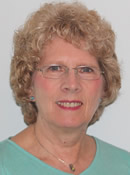 Carolyn Hayes is the NSTA President, 2015–2016; follow her on Twitter at caahayes.
Carolyn Hayes is the NSTA President, 2015–2016; follow her on Twitter at caahayes.
The mission of NSTA is to promote excellence and innovation in science teaching and learning for all.
Future NSTA Conferences
2016 National Conference
2016 STEM Forum & Expo
2016 Area Conferences
Follow NSTA


